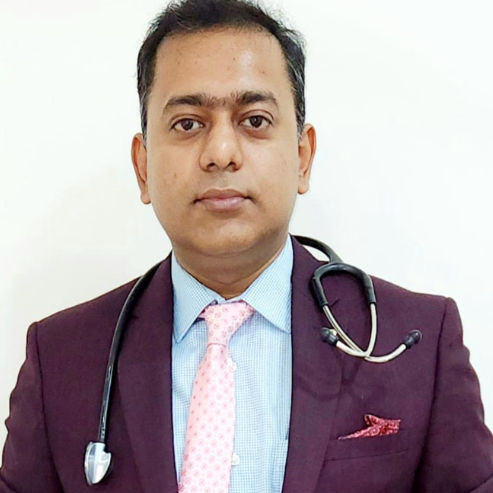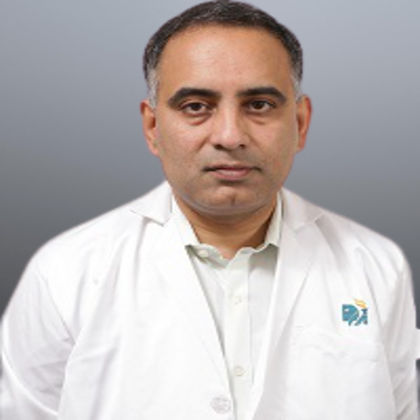Breast Lump Treatment Options Explained
Discover the different treatment options for breast lumps, from monitoring benign lumps to surgical and medical interventions for cancerous ones. Learn what to expect and when to seek care.

Written by Dr. J T Hema Pratima
Reviewed by Dr. Mohammed Kamran MBBS, FIDM
Last updated on 12th Aug, 2025

Finding a lump in your breast can be a scary experience, but it’s important to remember that not all lumps are cancerous. Many breast lumps are benign (non-cancerous) and can be treated effectively. Understanding your treatment options can help ease anxiety and guide you toward the right care.
What Is a Breast Lump?
A breast lump is a localised swelling, thickening, or bump in the breast tissue. While some lumps may be harmless (like cysts or fibroadenomas), others may require medical attention.
Common Causes of Breast Lumps
- Fibrocystic changes: Hormonal fluctuations can cause lumpy or tender breasts.
- Fibroadenomas: Non-cancerous solid tumours common in younger women.
- Cysts: Fluid-filled sacs that may come and go with the menstrual cycle.
- infections (Mastitis): Often seen in breastfeeding women, causing pain and swelling.
- Breast cancer: Though less common, some lumps may be malignant and require prompt treatment.
When Should You See a Doctor?
Consult a doctor if you notice:
- A new, painless lump that doesn’t go away after your period.
- Changes in breast size, shape, or skin texture (dimpling, redness).
- Nipple discharge (especially bloody or clear fluid).
- Persistent pain in one area.
Early evaluation is key to effective treatment, so don’t hesitate to seek medical advice.
Consult Top Specialists
Diagnosis: What to Expect
Before treatment, your doctor may recommend tests to determine the nature of the lump:
- Clinical Breast Exam: A physical check by a doctor.
- Mammogram: An X-ray of the breast to detect abnormalities.
- Ultrasound: Uses sound waves to distinguish between solid lumps and fluid-filled cysts.
- Biopsy: A small tissue sample is taken to check for cancer cells.
Once diagnosed, your doctor will suggest the best treatment based on the lump’s type and severity.
Treatment Options for Breast Lumps
1. Watchful Waiting (Observation)
If the lump is benign (like a small fibroadenoma or cyst), your doctor may suggest monitoring it over time without immediate treatment. Regular follow-ups ensure no concerning changes occur.
2. Medications
- Hormonal Therapy: For fibrocystic changes, birth control pills or hormone-regulating drugs may help.
- Antibiotics: If the lump is due to an infection (mastitis), antibiotics can clear it up.
- Pain Relievers: Over-the-counter painkillers (like ibuprofen) can ease discomfort.
3. Fine-Needle Aspiration (For Cysts)
- If a cyst is causing pain, a doctor may drain the fluid using a thin needle. This simple, quick procedure often provides relief.
4. Surgical Removal
Some lumps may need to be removed surgically, especially if:
- They grow quickly.
- Cause discomfort.
- Show suspicious changes in imaging tests.
- Are confirmed as cancerous.
Types of Surgery:
- Lumpectomy: Only the lump and some surrounding tissue are removed.
- Excisional Biopsy: The entire lump is taken out for further testing.
5. Cancer-Specific Treatments
If a lump is cancerous, treatment may include:
- Radiation Therapy: Targets remaining cancer cells post-surgery.
- Chemotherapy: Uses drugs to destroy cancer cells.
- Hormone Therapy: Blocks hormones that fuel certain breast cancers.
- Targeted Therapy: Attacks specific cancer cell proteins.
Your oncologist will create a personalised plan based on cancer type and stage.
Lifestyle Tips for Breast Health
While not all lumps are preventable, these habits can support breast health:
- Regular Self-Exams: Check your breasts monthly for changes.
- Healthy Diet: Eat plenty of fruits, vegetables, and whole grains.
- Limit Alcohol & Smoking: Both increase breast cancer risk.
- Stay Active: Exercise helps regulate hormones and maintain a healthy weight.
- Wear a Supportive Bra: Reduces discomfort if you have tender breasts.
When to Seek Immediate Help?
If you experience:
- Sudden, severe breast pain.
- Rapid swelling or redness.
- Fever with breast tenderness (sign of infection).
Don’t delay—seek medical attention right away.
Conclusion
Finding a breast lump can be worrying, but most are treatable. Early detection and proper diagnosis are crucial, so always consult a doctor if you notice any changes.
If you need expert advice, Apollo 24|7 offers easy online consultations with specialists. You can also book tests like mammograms or ultrasounds for peace of mind.
Remember, taking care of your breast health starts with awareness and timely action.
Consult Top Specialists
Consult Top Specialists

Dr Sunita Samleti
Oncologist
18 Years • M.D. (Pathology)- TN Medical College, Mumbai University, Mumbai, Mar 2005 M.B.B.S. Grant Medical College, Mumbai University, Mumbai, Oct 1999
Chinagadila
Apollo Hospitals Health City Unit, Chinagadila

Dr Gowshikk Rajkumar
Oncologist
10 Years • MBBS, DMRT, DNB in Radiation oncology
Bengaluru
Apollo Clinic, JP nagar, Bengaluru

Dr. Sanchayan Mandal
Oncologist
17 Years • MBBS, DNB Raditherapy, DrNB Medical Oncology
East Midnapore
VIVEKANANDA SEBA SADAN, East Midnapore

Dr.sanchayan Mandal
Oncologist
17 Years • MBBS, DrNB( MEDICAL ONCOLOGY), DNB (RADIOTHERAPY),ECMO. PDCR. ASCO
Kolkata
Dr. Sanchayan Mandal Oncology Clinic, Kolkata

Dr. Raja T
Oncologist
20 Years • MBBS; MD; DM
Chennai
Apollo Hospitals Greams Road, Chennai
(175+ Patients)
Consult Top Specialists

Dr Sunita Samleti
Oncologist
18 Years • M.D. (Pathology)- TN Medical College, Mumbai University, Mumbai, Mar 2005 M.B.B.S. Grant Medical College, Mumbai University, Mumbai, Oct 1999
Chinagadila
Apollo Hospitals Health City Unit, Chinagadila

Dr Gowshikk Rajkumar
Oncologist
10 Years • MBBS, DMRT, DNB in Radiation oncology
Bengaluru
Apollo Clinic, JP nagar, Bengaluru

Dr. Sanchayan Mandal
Oncologist
17 Years • MBBS, DNB Raditherapy, DrNB Medical Oncology
East Midnapore
VIVEKANANDA SEBA SADAN, East Midnapore

Dr.sanchayan Mandal
Oncologist
17 Years • MBBS, DrNB( MEDICAL ONCOLOGY), DNB (RADIOTHERAPY),ECMO. PDCR. ASCO
Kolkata
Dr. Sanchayan Mandal Oncology Clinic, Kolkata

Dr. Raja T
Oncologist
20 Years • MBBS; MD; DM
Chennai
Apollo Hospitals Greams Road, Chennai
(175+ Patients)


.webp)

